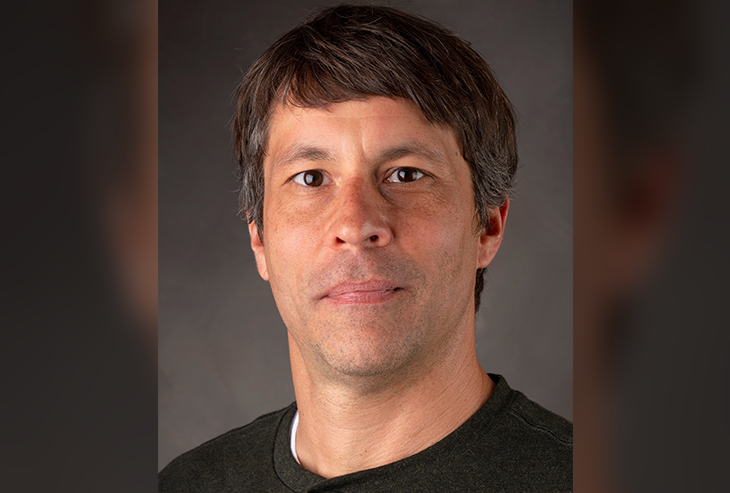In this column distributed by the Elon University Writers Syndicate, Senior Lecturer in English Greg Hlavaty stresses the importance of mental health care for young men to help curb violence. This column was published in the Greensboro News & Observer, The Fayetteville Observer and Burlington Times-News on Nov. 11.
By Greg Hlavaty
When 14-year-old Colt Gray first made headlines as the suspect in the September shooting at Appalachee High School in Georgia, I counted him another young psychopath that this country now seems to regularly produce.
But when his aunt said that he’d been “begging for help from everyone around him,” my attitude shifted. Recent investigations now make clear that Colt gave multiple warning signs, including building a “shrine” to other school shooters. According to recent testimony, Colin Gray, Colt’s father, said he briefly asked Colt about a shrine with a picture of Parkland shooter Nikolas Cruz, but as GBI special agent Kelsey Ward put it: “[t]here wasn’t any further discussion about that.”
It’s become a familiar narrative that only after a school shooting do we learn that the accused shooter divulged mental anguish to a trusted adult–or posted threats on social media platforms–and slipped quietly through the system or was simply ignored.
But ignoring troubled young men is nothing new. At Colt’s age, I drew a picture of my teachers, a gallery of heads with a knife sticking out of each one. Blood, of course. My mom freaked, but I was spared therapy. Granted, this was 17 years before the Virginia Tech massacre raised the question of whether to treat a young person’s violent art as a credible threat.
Later, I mused publicly about killing a classmate. My father owned a pistol, a Glock 9mm, that sat unlocked in a closet. Alone at home, I’d look at the gun, imagine its power, how tough I’d look wielding it. Why didn’t I use it? On myself or on a classmate?
I think what saved me were men who stepped in as surrogate fathers. Rather than try to make me into their image—a move that alienated me from my own father, especially when my attempts disappointed him—these men seemed genuinely proud of my small accomplishments.
They were far from perfect: one was openly racist and bragged about having lobbed bricks from overpasses in his youth; another was a middle-aged alcoholic—one of my college writing teachers, in fact—who regularly taught class drunk. Both sought my company and listened, really listened to my adolescent concerns without trivializing them.
But they did not spare me. When I failed to meet my potential as a writer, my teacher hollered at me on the street at 2 a.m. Shaken, I spent days rewriting a story, and he responded with a message on my answering machine, reading aloud passages of my work and exclaiming: “You’ve finally done it!”
I played and replayed that message. If you’ve never been lonely and disliked, you cannot understand the value of that phone call. To know I was worth something loosened my grip on the proverbial gun.
In a country with over 400 mass shootings this year alone, it’s easy to dismiss listening as a naïve approach to violence prevention, especially if you believe that shooters can only be psychopaths. Since Columbine, psychologists like Peter Langman, author of School Shooters, have painted a more complex picture of shooters: psychotic, psychopathic and traumatized. We must not let psychopaths, who are unreachable by empathy, overshadow the traumatized, those who potentially could be helped.
Could Colt Gray have been helped if someone had acted sooner, and more effectively? While I would never defend his violence or pretend to psychologically evaluate him from news stories, I can’t help but infer that he asked for help and was systemically failed.
Several caring family members acknowledged his traumatic home life: Colt’s aunt reported the boy was having “homicidal and suicidal thoughts,” and his maternal grandfather said, “My grandson did what he did because of the environment that he lived in.” But seeing a problem is not the same as taking effective action. Culturally, we seem to have farmed out accountability to law enforcement, teachers and mental health professionals, but they are limited by institutional frameworks, and they cannot handle this job alone. We need role models for young men, people who show up consistently, people who care and act before someone starts to mentally deteriorate.
You may not see yourself as a role model; neither did the flawed men who helped me. But they showed up anyway. While talking to teens can be difficult, a good starting point would be to listen without condescension, without trivializing their concerns. Sometimes all a young man needs is to externalize his pain. Better he do it with words than with bullets.
With the indictment of Colt Gray’s father, everyone is asking now whether it’s fair to hold parents accountable for what young shooters do. The truth is, we’re all guilty of ignoring the suffering of young men. We must take responsibility before they turn more classmates into targets.



